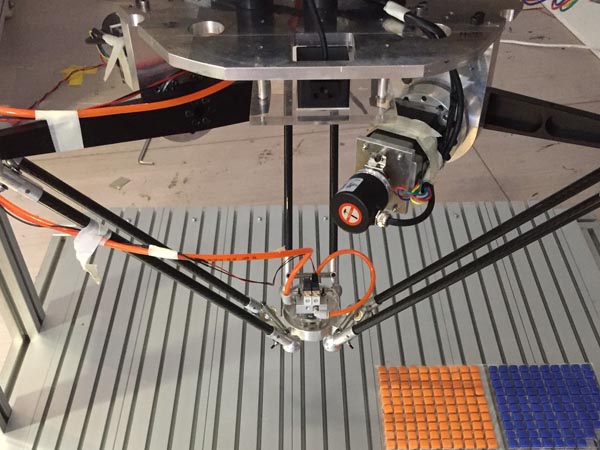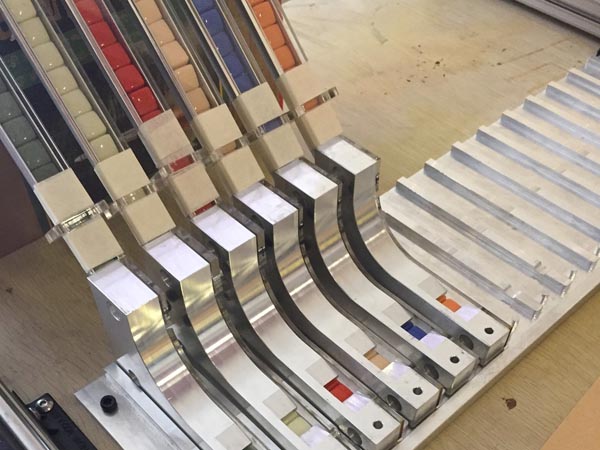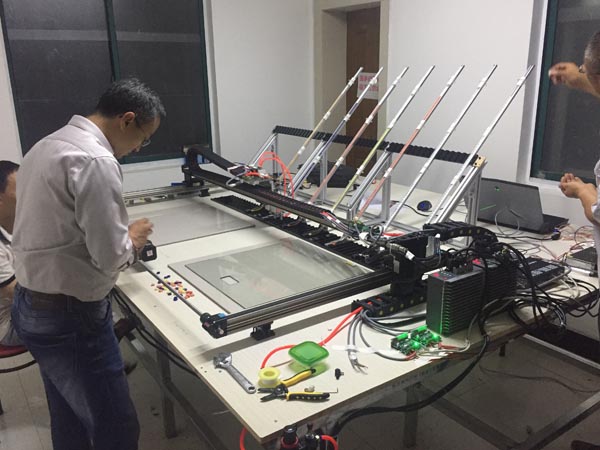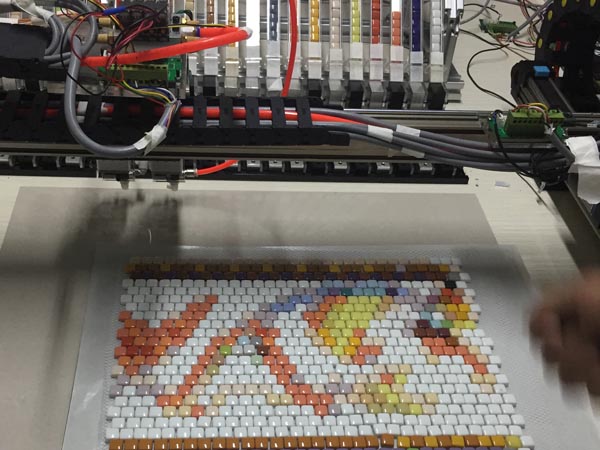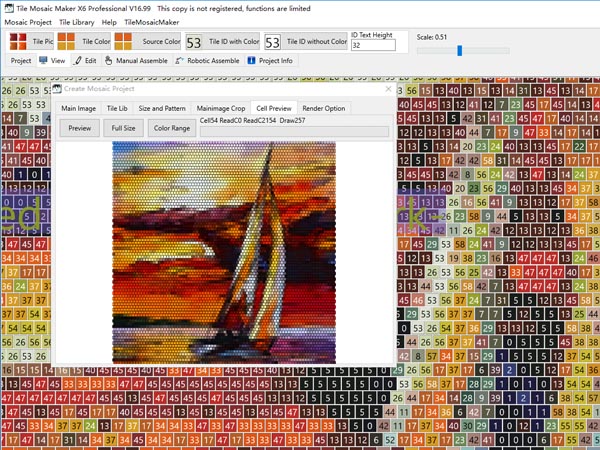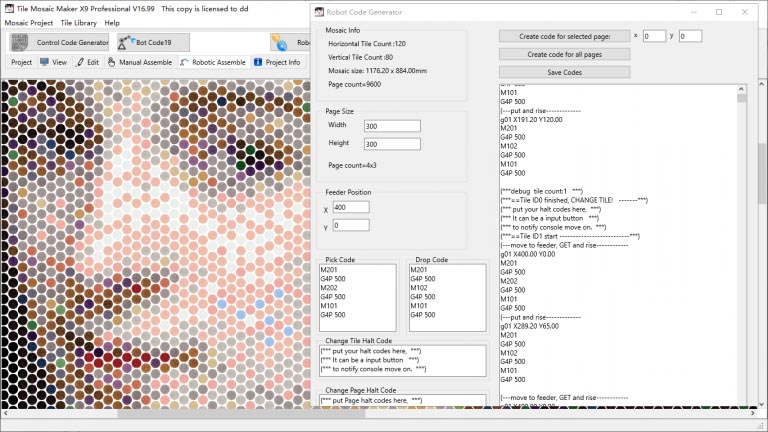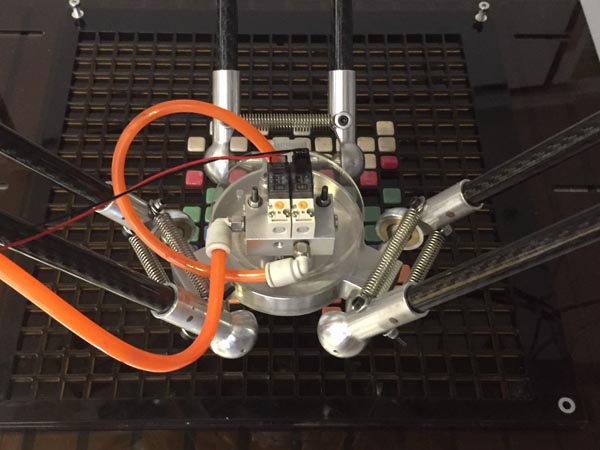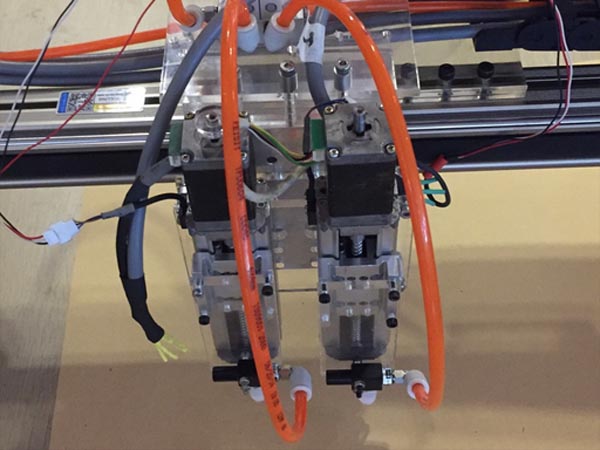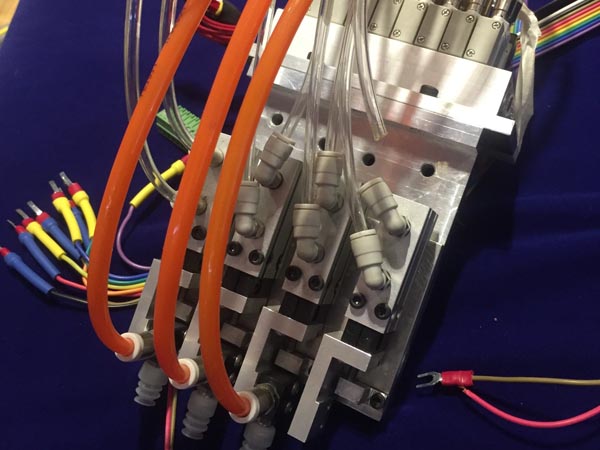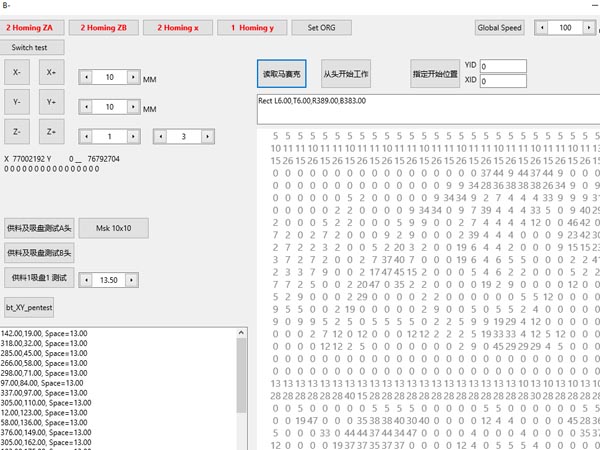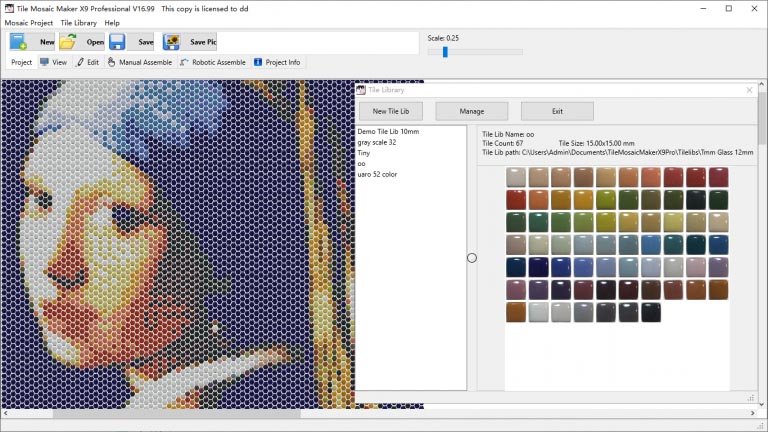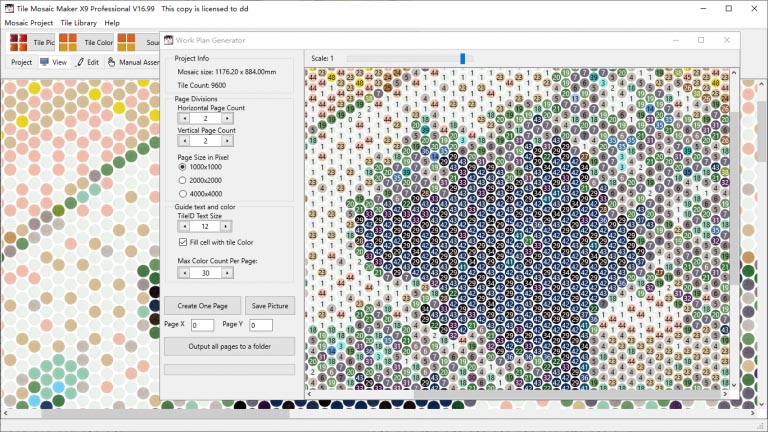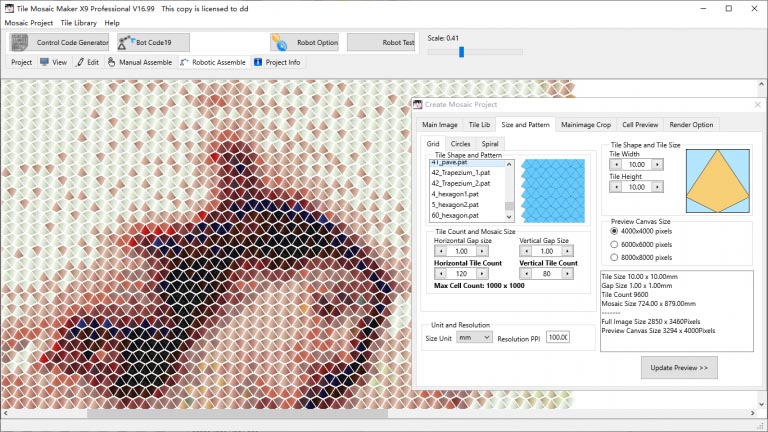Mosaic Robot
ROBOTIC MOSAIC ASSEMBLY IS THE FUTURE OF MOSAIC INDUSTRY!

Mosaic Robot series are developed by ezmosaic.com
A typical mosaic projects for floor, plaza and pool may have more than 100,000 tiles.
I’ve done one with 1,200,000 tiles. It is extremely time consuming to assemble mosaic tiles.
It is really difficult to deal with small size tiles, such as 8x8mm, 10x10mm, 15x15mm, or similar size.
A skilled labor can finish no more than 10,000 mini tiles per day. That is why we started research and develop the automatic mosaic mounting system.
System Componets
Robotic mosaic assembly line has two major componets.
A: Mosaic Pick and Mount Robot.
There are Pallet Area and Feeder Area of all mosaic robots.
The robot will pick tiles from feeders, take them to Mosaic Pallet and place tiles to proper destinations.
Our Mosaic Robot Cartesian is a quick, percise, economic and durable solution for owner of mosaic business.
Our Robots are optimized to pick multiple small tiles. it is more efficiency than any other industry robots.
The fastest model can assemble 6000 tiles per hour. and we are working to speed up more.
B: Tile feeding system.
Feeders are designed to supply tiles to mosaic robot.
Typically, a feeder will transfer a queue of tiles to a fixed position (Receiver). Mosaic robot will pick up tiles there.
There are several types of feeders can do it.
Gravity Slot, Pallets, Vibriation Gravity Slot, Vibriation Disc, Revolver, Pallet Stack, etc.
Another feeding solution
Camera system (computer vision) can be used to hold irregular shape tiles which are not suitble for standard feeders.
In most case it will be combined with panel or belt system.
Robot and Feeding System and Support Componets gathered together to form up a Robotic Mosaic Assembly System.
It is not a ready to sell product. You need to contact us to order your unique system.
The common features and workflow of a robot powered mosaic workshop
If you want establish your own mosaic robot workshop, There are many types of mosaic workshop exist.
They share some common features and use similar workflows.
Common Features
Tile storage. (slots, pallets, packs, storage rack, etc)
Feeding system.
Pick and mount robot.
Receiving system.(pallets, grid, panel, etc)
Finalizing workspace. (flipper, glue, etc)
Typical Workflow
A. Tile preparation. Worker insert tiles to tile feeders, for example Tile Slots.
B. Design a mosaic and generate mosaic data file.
C. Load the mosaic data file to Robot Console.
D. Worker get Tiles Slots from the storage, mount them to the Feeder area of the robot.
E. Worker get Mosaic Pallets from Empty Pallet Storage , and mount them to Pallet area of the robot.
F. Run Mosaic Robot.
G.Once a Mosaic Pallet is filled, you will get a Ready prompt message from a beeper or light.
H.Worker will take the ready Mosaic Pallet to finalizing worktable. and package them.
Demo video, Types of our mosaic robot.
Cartesian Robot, the most popular model.
Delta Robot, this type is fast for tiny tiles.
Delta Robot with 4th rotate axis. it is designed for mosaic patterns need to rotate tiles.
| Cartesian Robot | Delta Robot | Rotate Test |
|---|
Demo Video, Feature Experiments
| Speed test 10mm tile | Glue jet | Combo test, glue and tile. |
|---|
Robot Type Comparison
| Type | Tile Size | Feeder | Color Count | Work Space | Speed | Advantage | Cost |
|---|---|---|---|---|---|---|---|
| CARTESIAN Lite |
5mm to 15mm | Gravity Slot Vibriation Slot |
16 to 32 colors | 300x600mm | 1200 to 2400 tiles/hour | Cheap | $4,000 to $8,000 |
| CARTESIAN Pro |
5mm to 40x40mm | All | 16 to 100 colors | 300x600mm to 1000x1000mm | 3000 to 6000 tiles/hour | Fast, Grid Pattern |
$6,000 to $15,000 |
| *DELTA | 5mm to 40x40mm | All | 16 to 60 colors | 400x400mm to 800x800mm | 3000 tiles/hour | Compact Size Rotate Pattern |
$8,000 to $20,000 |
*We do not offer Delta Robot at this moment, It need more testing in our lab and workshop.
Feeder Type Comparison
| Type | Capacity | Refilling | Jamming Toleration | Usage | Cost of a 24 colors group |
|---|---|---|---|---|---|
| Gravity Slot | 50 to 200 tiles | Manually or Vibriation Disc | Weak | Artstudio, Workshop | $1,500 |
| Vibriation Slot | 100 to 200 tiles | Manually or Vibriation Disc | Normal | Factory | $2,400 to $5,000 |
| Vibriation Disc | 1000 to 5000 tiles | Very easy: pour | Strong | Factory | $12,000 to $20,000 |
Full solution includes Mosaic Robot, Feeder Group, Accessories, Spare Parts, etc.
Entry level mosaic robot system,
equiped 24 feeder (10mm tiles), speed=1200 tiles/day, cost $8,000 more or less.
Standard system,
48 colors vibriation feeder, 2 size tiles (10mm, 14mm or other size) , speed=4000 tiles/day, cost around $22,000.
Factory system with higher performance will cost more. Contact us to discuss.
Order Now
Video Demo: Module Experiment
| Vibration Slot Feeder | Vibration Disc Feeder | Machine Vision |
|---|
Mini Tile Testing, 3mm, 4mm, 5mm, 6mm.
Custom Glass Cutter,
Screenshots of the design software
FAQ
Delivery time
A: Once we receive the order and down payment, we need 45 days to produce the mosaic robot and test it. then send it to shipper.
Export Port
A: GuangZhou, PRC CHINA
Weight of a mosaic robot system
A: From 100 Kg to 400 Kg. It can be seperated to multi parts.
Warranty?
A: Two years. and we provide lifetime reparing service.
Most major parts are designed as modules, they can be replaced with new parts easily
Tech Support?
A: Online meeting, Remote diagnose via video meeting.
We can provide onsite support once the covid issue is gone.
Do you provide education?
A: We will provide video tutorial and live meeting to teach your worker.
We can provide training at our workshop to your worker. (Covid issue is gone)
Support language?
A: English and Chinese.
Ask us if you have questions.
Ask Questions